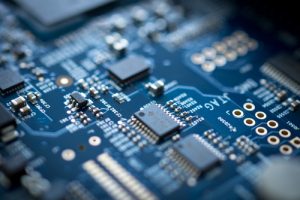
U.S. Rep. Michael McCaul (R-TX), ranking member of the U.S. House Foreign Affairs Committee, this week introduced bicameral, bipartisan legislation to bring back semiconductor manufacturing to the United States.
“Ensuring our leadership in the future design, manufacturing and assembly of cutting edge semiconductors will be vital to United States national security and economic competitiveness,” Rep. McCaul said on Wednesday. “As the Chinese Communist Party aims to dominate the entire semiconductor supply chain, it is critical that we supercharge our industry here at home.”
Rep. McCaul on June 11 sponsored the Creating Helpful Incentives to Produce Semiconductors (CHIPS) for America Act, H.R. 7178, with lead original cosponsor U.S. Rep. Doris Matsui (D-CA) to restore American leadership in semiconductor manufacturing by increasing federal incentives that would enable advanced research and development, secure the supply chain, and ensure long-term national security and economic competitiveness, according to the congressional record bill summary.
The same-named S. 3933 was introduced on June 10 by U.S. Sens. John Cornyn (R-TX) and Mark Warner (D-VA) in their chamber.
“In addition to securing our technological future, the CHIPS for America Act will create thousands of high-paying U.S. jobs and ensure the next generation of semiconductors are produced in the U.S., not China,” said Rep. McCaul.
If enacted, the bill would create a 40 percent refundable investment tax credit (ITC) for qualified semiconductor equipment or any qualified semiconductor manufacturing facility investment expenditures through 2024. The ITC would be reduced to 30 percent in 2025; 20 percent in 2026; and would phase out in 2027, according to a bill summary provided by Rep. McCaul’s office.
Additionally, the proposed bill would direct the U.S. Commerce Secretary to create a $10 billion federal program that matches state and local incentives offered to a company for the purposes of building a semiconductor foundry with advanced manufacturing capabilities, according to the summary, and would create a new semiconductor program to support advanced manufacturing in America and support STEM workforce development.
Among numerous other provisions, the measure also would authorize funding for the U.S. Department of Defense to execute research, development, workforce training, test, and evaluation for programs, projects and activities connected with semiconductor technologies.



